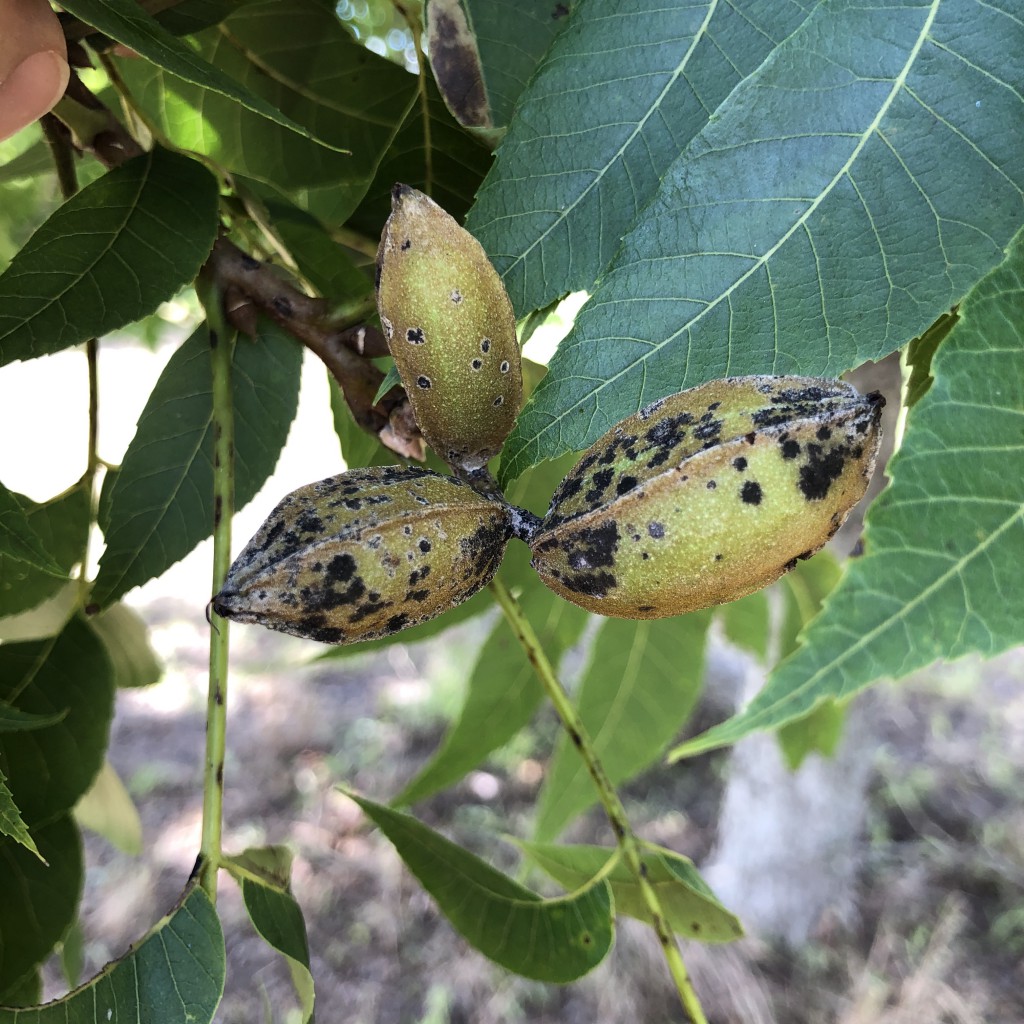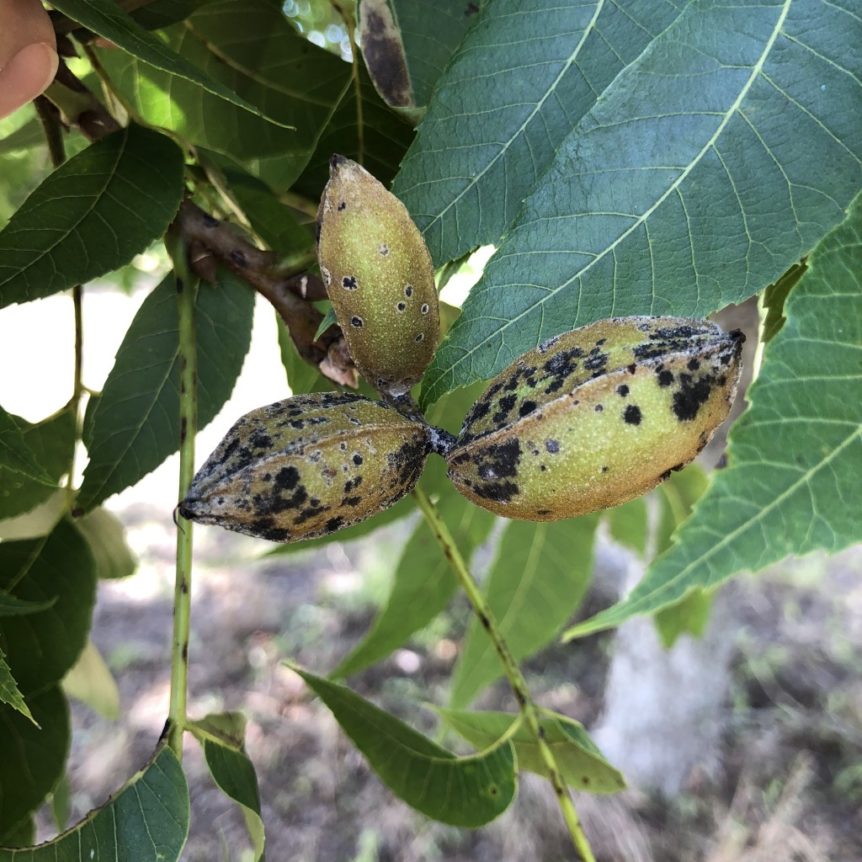By Clint Thompson
Scab disease was high this summer for Georgia pecan producers. Additional rainfall in July contributed to the increased pressure affecting the state’s crop, says Lenny Wells, University of Georgia (UGA) Extension pecan specialist. He also said growers have managed the disease effectively and need to continue towards the end of this production season.

“We’ve had a lot of scab pressure over the month of July. June and July are the two most critical months for scab control. June was pretty dry, but July was really wet,” Wells said. “Growers were struggling to get out there and keep them sprayed. But they did a really good job of tightening the intervals when they needed to. Our scab control looks pretty good at the moment. We’re right here at the end of it.”
According to the UGA Automated Weather Network, Moultrie, Georgia, received 9.77 inches of rainfall in July, compared to 3.4 inches in 2023. Cairo, Georgia, received 9.34 inches of rainfall in July, compared to 4.77 inches in 2023.
Scab is a fungal disease that infects the leaves or nuts of pecan trees. If scab impacts the nut early enough in the production season, it can cause the nut to blacken and fall from the tree. It excels on trees that have received moisture. Some growers must make at least 10 fungicide applications during an average year to manage the disease.










